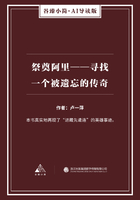This acknowledged, the next matter is the more exact estimate of the individual equivalents. The circumstances which decide are wealth, income, and want. The greater the wealth and income, the greater will be the subjective equivalent or the taxation; and the greater the degree of want, the smaller will be the subjective equivalent or the taxation. All the same, taxation cannot simply be fixed proportionally to wealth and income: a progressive rate of taxation is justifiable. The man who only earns enough to sustain the physical minimum of existence has nothing left to give up to the state. I cannot go further than this and show the reasons which Sax gives for the claim of exemption of those who are at the minimum of existence, for the progressive rate of taxation, and all the other familiar claims of modern taxation. While it need scarcely be said that, as the science grows, many things will probably be formulated otherwise, still he has reached the essential matter. In all points which have been indicated as important by economic discussion up till the present, and which developed legislation has called into notice, he has discovered the connection between them and general economic facts and principles, and thus given to what has been empirically reached a basis in theory.
Hitherto, as regards the most important points of the theory of taxation, the science of finance has rested its tenets on an appeal to the claims of justice. In this almost unanimous dependence upon outside and non-economic considerations, the imperfect condition of that science betrays itself even more than in its lack of agreement over the purely economic part of its investigation, and so far as this remains it must resign all claim to be regarded as an essentially economic doctrine. Thanks to the labours of Sax this is to a great extent altered. All the principal requirements of the theory of taxation have obtained an economic foundation in being derived from the general economic categories -- Want, Goods, Economy, Value. In spite of this, however, I cannot believe -- though this brings me into opposition to Sax -- that the economic basis of taxation has proved so perfect as to be able to dispense altogether with considerations of justice. Without attempting any complete proof of this statement -- which could not he done without the difficult and tedious work of distinguishing between the economic and the just, -- I should like to advance one single argument which appears to me sufficiently to corroborate its correctness.
Sax as we have seen requires that every one pay in taxation the full money equivalent in which, according to his own individual standpoint of value, is expressed the value of the services of the state to him. This claim is certainly absolutely economic, in so far as it prevents the less able being taxed at their maximum or above it, while it taxes the more able under their maximum. The claim is, further, certainly an economic one, in so much as it excludes the possibility of any one being taxed above his maximum. But in so far it is not an absolutely economic claim; it rests also upon the legal assumption of private property; it would be uneconomic if it could be proved that private property is itself uneconomic. But how would it be if this claim were set against one which demanded that the rich, and possibly the middle classes also, should be taxed at their maximum, while the poorer and poorest classes were taxed below it? What could be opposed to this claim? Certainly no absolutely economic consideration; for the result of this being realised would be, economically considered, a more perfect satisfaction of the people's want. The only thing that could be opposed to it would be the consideration that, as a matter of justice, the same formal fundamental proposition must hold for all, -- equal justice for all; a consideration which might, perhaps, in the last instance, be traced back to an economic basis, but which, in the present state of scientific development, is simply derived from the feeling of justice, and represents a quite distinct phase of that feeing. It may possibly be that, at a later period of time, it will be declared the duty of the rich to free the poorer classes from all pubic burdens, in order somewhat to mitigate the privations they suffer from the unequal distribution of wealth. Sax himself suggests (page 522) that, when that time comes, there may be an active endeavour, based on altruistic motives, to extend exemption from the "physical" minimum of subsistence to a "culture" minimum. It is possible that this endeavour might be only a symptom of gradual development in the direction of freeing the weakest and weaker classes, entirely or in part, according to the degree of their weakness, from the burden of taxation.(1*)As it is with the ordering of taxation, so is it, in my opinion, with all valuations in private and national economy, in so far as they have to weigh the conflicting interests of many persons. The principle which will reduce to a common measure of advantage the interests of persons who are differently situated in respect of wealth, has, I think I may venture to say without hesitation, not yet been found. So long as it remains undiscovered, it is impossible in such cases to dispense with some reference to that ranking of personal claims with which the feeing of justice is somewhat satisfied. If we give our assent to the principle of taxation demanded by economic theory, it is only because, without having an entirely strict theoretical justification for it, practical considerations which cannot be rejected compel us to approve of private property, and, moreover, of a degree of its utilisation quite definite and in accordance with modem ideas.















